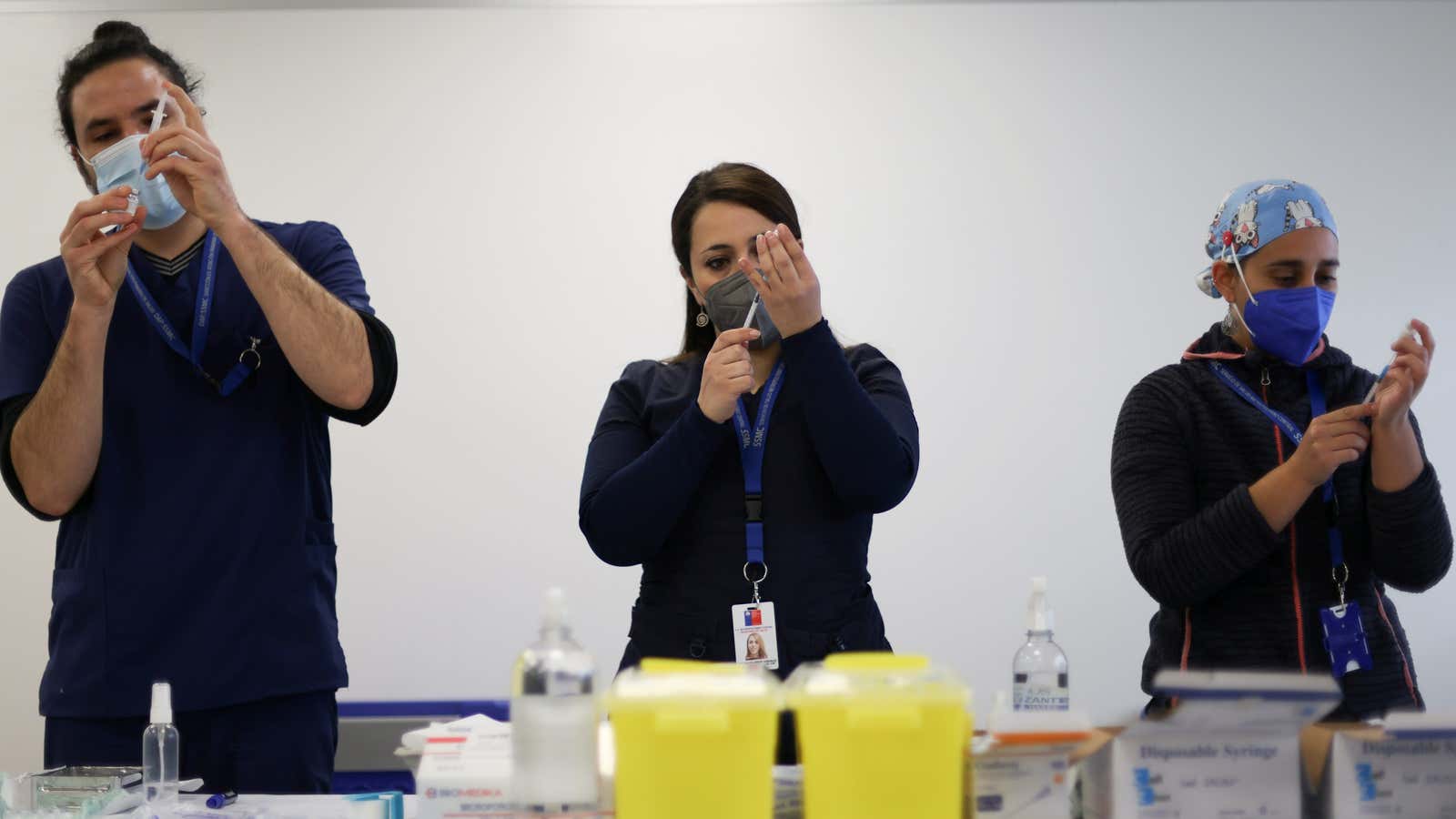In recent weeks, companies like Walmart, Disney, Google, Facebook, and Netflix have declared that employees must get jabbed to keep their jobs or come into the office. It’s one of a number of nudges aimed at pushing up vaccination rates to protect Americans from the ravages of Covid-19.
The decisions made by tech titans, big banks, and other mega-corporations can have a big influence on the public conversation about vaccines. But how many Americans will be directly impacted by vaccine mandates at large employers in the private sector?
How many Americans are in the workforce?
To look at the potential effects of widespread large employer mandates, first consider how many Americans are in the workforce at all, compared to those who are too young to work, unemployed, retired, or not participating in the labor market for any number of reasons.
According to the latest data from the US Bureau of Labor Statistics, 58% of the roughly 330 million people who make up the total US population are employed, down from 61% at the beginning of 2020.
In 2019, about 2% of employed Americans worked for the federal government and 14% occupied state or local civil servant jobs. That leaves 44% of the US workforce in private sector roles.
How many Americans work for large employers?
The latest data from the US Small Business Administration Office of Advocacy also show that, as of 2018, about 54% of adults, or some 70 million people, working in the private sector clocked in at large firms, which are defined as those employing more than 500 people.
The rest, 46% percent of the private-sector workforce, or 61 million people, were employed by small businesses. That figure includes millions of sole-proprietor companies, such as tradespeople for hire, freelancers of every stripe, and gig workers earning a living through platforms like Uber and DoorDash.
The upshot: If every large employer in the US insisted on vaccinations for their staff, they would impact roughly half of all adults employed in the private sector economy and less than a quarter of the total population. Three in four Americans would be unaffected by the rules.
Notably, US president Joe Biden did recently announce that all “on-site” federal government employees would need to be vaccinated or face weekly testing, though his guidance did not set any firm deadlines for when this incentive would go into effect. That policy is significant not only because it will apply to about 4 million federal workers, but also to an estimated 7 million federal contractors and people working under federal grants, as the AP reports. The Whitehouse is also hopeful that it has set an example that private firms will feel inspired to follow.
Small businesses should require vaccines, too
Drawing a hard line regarding vaccination is necessary and even brave, given the battle to retain front-line staff and the extreme politicization of vaccines in the US. In some states, companies are now stepping in where local officials have been banned from enacting mandates.
But as we hear of more recognizable companies requiring that staff get inoculated, it’s worth keeping these back-of-the-envelope calculations in mind. Clearly, an equal amount of public pressure to demonstrate socially responsible leadership this way ought to be applied to small startups, mid-sized businesses, and scores of neighborhood establishments. Customer-facing businesses that want to do the most good would also join the growing list of companies who now insist on proof of vaccination at the doors to their shops, gyms, hotels, and restaurants.
It’s still unclear how many unvaccinated people would agree to be vaccinated if it was required to keep their job, no matter the size of their company. Some experts are hopeful that hold-outs would prefer to join the vaccinated than undergo testing every week, be forced to wear masks or PPE, or lose their jobs. For now, however, it appears the rise of the more infectious Delta variant is leading people to finally book their vaccination appointments and may make CEOs’ life much easier.
